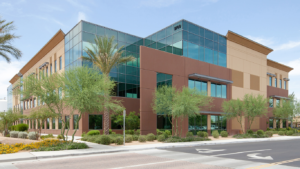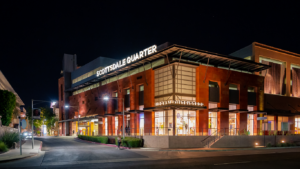Not all commercial deals were created equal. It’s when things get a little messy, complex or a buyer is considering a potentially risky investment that having a Certified Commercial Investment Manager on his or her side can lead to the most informed decisions possible. This was especially true during the Great Recession. Below are vignettes of interesting, risky and downright bizarre deals local CCIMs have encountered.
The fine print
CCIM: Alan Davidson, ORION Commercial
In 2009, an investment group* bought a package of properties. One property in particular, a single-story, single-tenant property, though gave them a bit more than they bargained for. When the investment company foreclosed on the property, they found three tenants in the building, a personal boat parked on the premises, flammable materials in what Davidson called a “non-permitted hut” outside the building, a second-floor mezzanine and electrical rewiring that was not completed to code. Furthermore, the previous tenant did not have permits for multiple tenants. The City of Gilbert, which happened to be operating across the street during all this, Davidson says, “red-tagged” the businesses and effectively asked them to move out. Davidson’s role was to strike an agreement with the city to let the tenants stay in operation until they could find a new space to lease. He managed to do this, and to sell the building “as is” to one of the remaining tenants who wanted to consolidate his cabinetry businesses around the Valley.
*Davidson has left his clients and certain specifics vague in the interest of fiduciary duty. He is unable to divulge details without written release, which he did not seek for this feature.
The corner of happy and healthy
CCIM: Alan Davidson, ORION Commercial
Universities receive planned gifts from alumni, especially those who have a particularly strong bond to their alma mater. One generous alum of a California university that will remain unnamed* who had no heirs named his alma mater the beneficiary of two Walgreen’s stores’ land leases in Phoenix. The university contacted a California-based bank for which Davidson was tasked to sell the properties as quickly as possible — in 2009. The university didn’t want to take the title for the land and the Walgreen’s leases were nearly up and losing value. Additionally, one of the leases had a defeasance clause, meaning the loan couldn’t be paid off unless the income to the lender was replaced with equivalent earnings. Davidson deferred to a North Carolina company that had an expert in defeasance clauses and found investments to acquire in Walgreen’s ground lease. The leases were sold in less than 100 days — and the new buyer sold the properties two years later.
To buy or not to buy
CCIM: Scott Fey, Omni-American LLC
Horne Plaza, a 15KSF retail center in Gilbert was available for sale in 2012. The economy was still very soft and retail in Phoenix had not improved. Furthermore the center’s largest tenant, Gilbert Center for Family Medicine, was preparing to move. The largest challenge was to replace the 6KSF medical tenant. The second largest challenge was beyond the control of the buyer. Part of the center not for sale was a 60KSF former Albertsons grocery store. The store was abandoned and there was no indication it would be replaced anytime soon. The CCIM performed a value forecast for the buyer showing the center value based on a CAP rate five years in the future under a worst case, best case and most likely case scenario. The CCIM also studied the retail market in the immediate area and discovered that many of the large vacant “big box” store locations that had been empty in the area were selling at a rapid pace. The buyer considered all of the research and made the decision to purchase what on the surface appeared to be a rather drastic situation. The CCIM helped the buyer negotiate a favorable termination with the medical center that had decided to leave its lease early. The broker on the building was instrumental in completing a lease with a new medical office tenant. An investment group from Las Vegas purchased the old Albertsons location and leased the space to a new grocery chain. The owner successfully released a smaller tenant that was not paying rent on time and expanded the new medical tenant into its space. Cash flow of the property not only stabilized but grew with company guaranteed leases. The value of the building has improved exponentially with the buyer taking a risk but a calculated risk based on the CCIM research.




